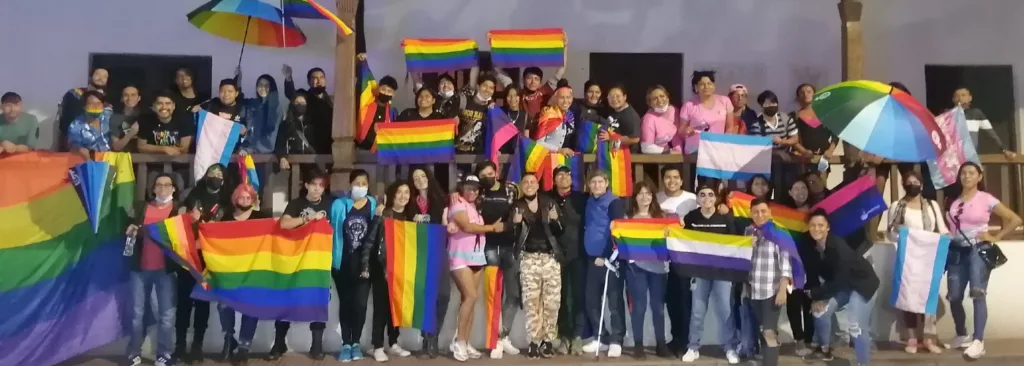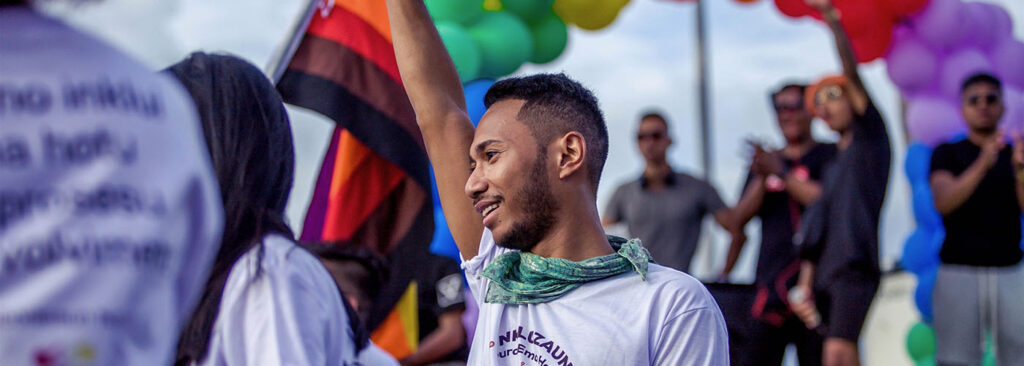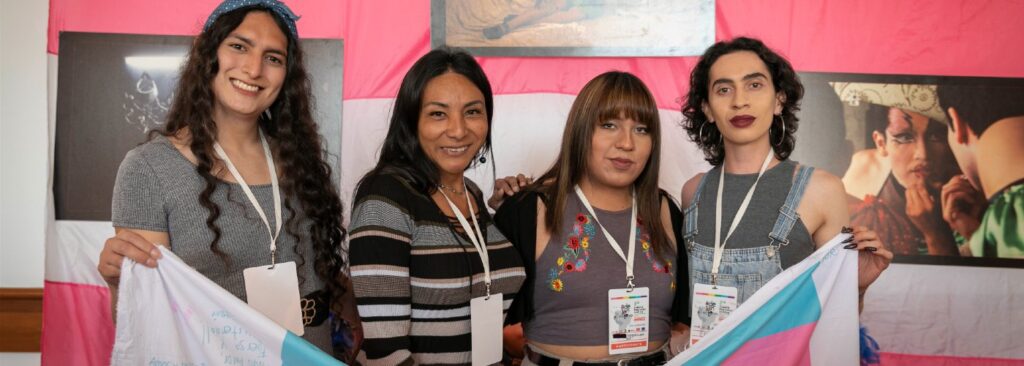Lorena Yañez (she/her) works for Hivos in Bolivia to develop projects that contribute to gender equality, diversity and inclusion. There still remains much to do in the country when it comes to the legal protection of LGBTIQ+ people. For example, although you can legally change your name and gender on official documents, same-sex married isn’t allowed.
Is Pride celebrated in Bolivia?
“In Bolivia we celebrate Pride every year at the end of June, when it’s the middle of winter. Despite the cold, a Pride march is held in almost every city in the country, the largest of which happens in the capital La Paz.”
Why do you think Pride is important?
“Pride visibly contributes to a complete life for all people, regardless of their gender or sexual identity. It’s an opportunity to make diversity visible and embrace it. In a multicultural country like Bolivia, with no fewer than 36 officially recognized ethnic groups, other forms of diversity cannot be ignored.”
“Bolivia’s Pride marches are expanding and are increasingly welcomed. Family members of LGBTIQ+ people join in, authorities join in, and straight and cis people also show they’re allies.”
How does Hivos contribute to LGBTIQ+ rights in Bolivia?
“Hivos plays an important role in promoting LGBTIQ+ rights here. In 2023, with the support of Hivos, the first national survey was conducted to map LGBTIQ+ communities. This was an important step towards more recognition and visibility.”
“And our large Adelante con la Diversidad (Forward with Diversity) project has influenced legislation and contributed to greater equality and justice. For example, our advocacy efforts pushed the Constitutional Court in Bolivia to issue a ruling that protects trans people from arbitrary arrest by the police. And we don’t only work in Bolivia, but also in Colombia, Ecuador and Peru.”




